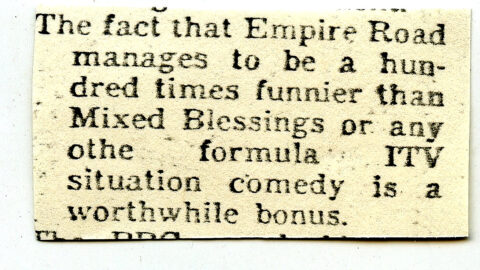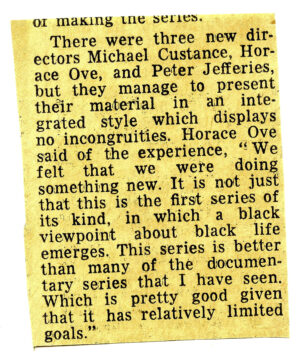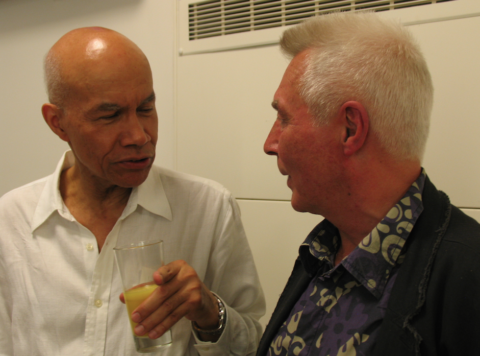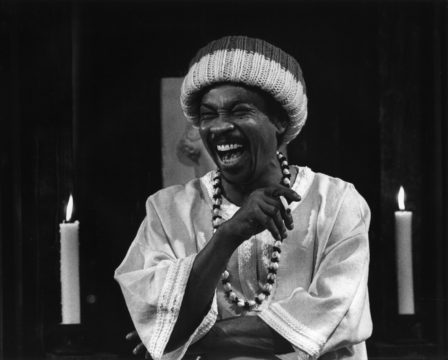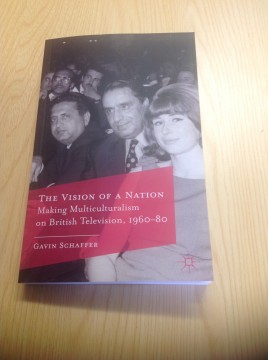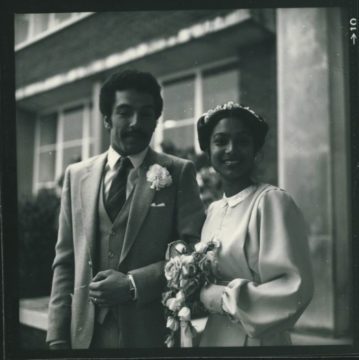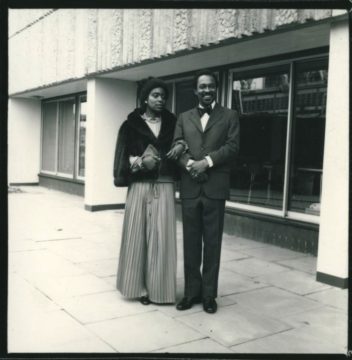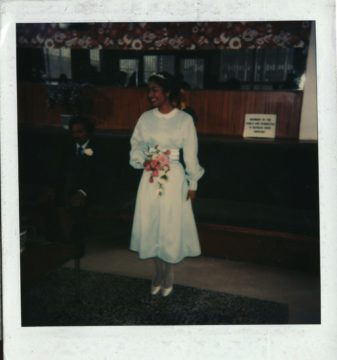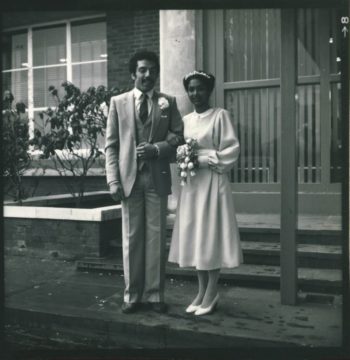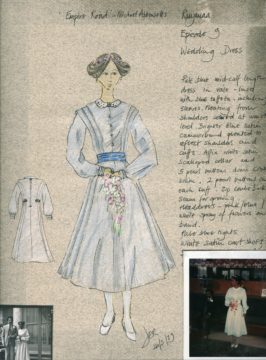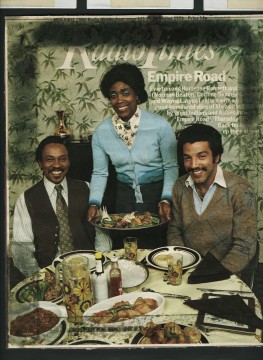My first BBC job. This series was commissioned by BBC Birmingham drama dept. which was renowned for being more daring and experimental than BBC London. ‘Empire Road’ was no exception and Peter Ansorge the producer was one their most daring producers.
There is a long straight road running up through immigrant area North Birmingham called Bristol Road. All the shops were owned by Asians and all the manual jobs, digging up the roads and council works were done by West Indians. Between the two cultures there was a lot of racist tension.
Written by Michael Abbensetts it was a political series aimed dead centre at the racist problem with the leading family being West Indian and their daughter marrying an Asian. Michael wrote the series using comedy to attack the racism and by using comedy he could get away with going further into the problem than a straight drama could have done.
Filming on the streets was a bit dangerous but thankfully nothing happened. Norman Beaton the top black actor in the country played the lead role and most of the others were first timers. Rehearsals with a cast where half were culturally completely different from the other half was lively to say the least.
The series had a huge impact in the national press particularly when the Imans of the local mosque tried to get the series banned because of the mixed marriage. The producer Peter Ansorge told them to go to the Birmingham marriage registry and see for themselves that there were hundreds of mixed Islam marriages in the district. They still would not have it and went to their member of parliament and of course got no further with a politician.
The series was hysterically funny and mixed with West Indian music, jam sessions, street dances, singers. I will never forget the actress that launched into ‘Sitt’n On The Dock of The Bay’ in the middle of a scene completely unscripted and on the spur of the moment yet quite brilliant. In the studio when shooting a party scene with a reggae band you could have cut the haze of marijuana with a knife. I think we all got a bit high. Illegally, we locked the studio doors to stop anyone complaining in the middle of the shoot.
Getting the mixed race cast to turn up rehearsals at the same time was a battle we never won, despite having two lists of call times, the West Indian list was 15 minutes earlier than the Asian list to try and get them all together at the same time. A young actor turned up 45 minutes late and I let rip, “Why on earth can you never be on time”. “I’m never on time man but I am in time”. Of course he was ‘in time’, because I can not start without him.
In the midst of a studio shoot my gallery was suddenly filled with police coming to arrest Norman Beaton, the star. Peter, the producer managed to talk them into waiting till we had finished shooting that day. They sat down and watched the shooting for two hours. Made their day. Norman was playing Father Christmas and the minute we finished the last shot he was marched away still in his Father Christmas costume.
We needed a really grotty small cafe and found one at the end of Bristol Road yet when we arrived to film a few days later it was totally redecorated and spotless. The owners wanted their cafe looking “Nice for your film”. Embarrassing. We could not say to them we wanted it grotty. Had to leave and find another in a hurry.
